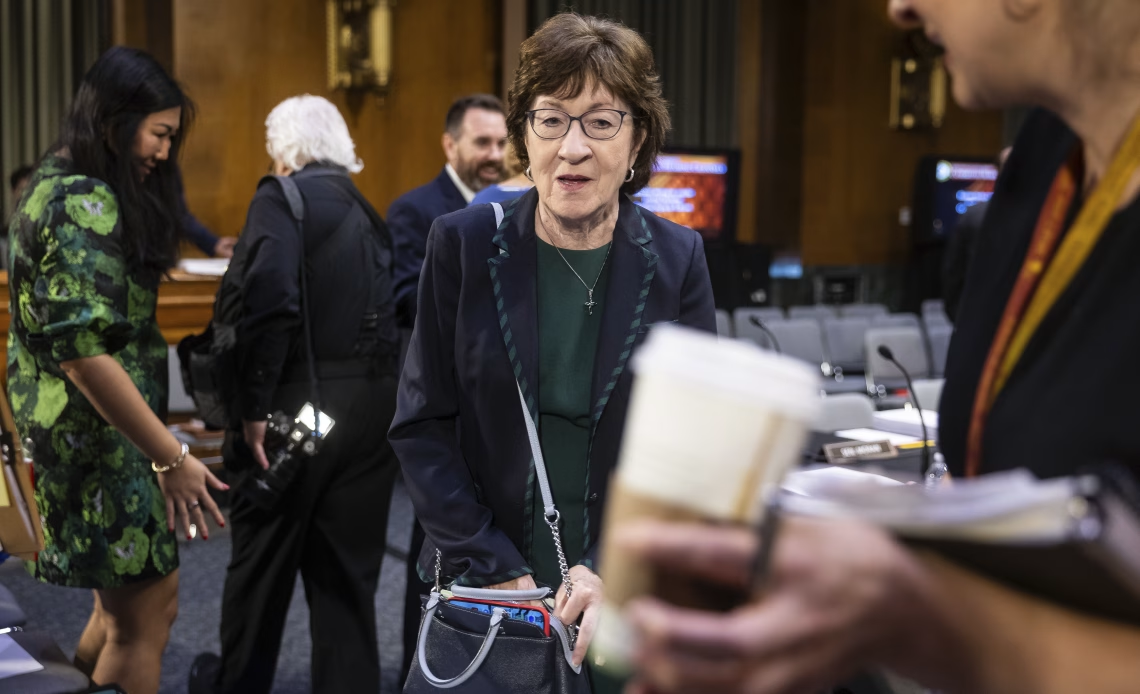Elected officials are on edge and clamoring for enhanced safety measures for themselves and their families after the shooting of Charlie Kirk. But even before Kirk’s death, Senate appropriators green-lit funding to continue a pilot program for increased security for lawmakers at home, the top Republican on the Senate Appropriations Committee said Thursday.
“The bill that we passed would provide for a pilot program,” Senate Appropriations Chair Susan Collins (R-Maine) told reporters Thursday.
The funding for the pilot program flows through the Senate Sergeant at Arms accounts, which fund Senate-specific security programs separate from the Capitol Police, sparing lawmakers’ office accounts from the burden of large security costs.
The Sergeant at Arms was given an allocation in the legislative branch appropriators bill the Senate approved in July, but as with many security related accounts, itemized details are not made public.
Collins cautioned the measure is now headed to bicameral negotiations, where the funding levels could change and entire policies could get stripped. The inclusion of this money to begin with, however, reflects the extent to which the specter of political violence has become a bleak reality for elected officials.
For years, lawmakers have raised concerns that they are unprotected when they are outside the highly securitized Capitol campus in Washington, even when conducting official duties back home. Their fears became more pronounced after the shooting of state legislators in Minnesota in June, and have metastasized following the targeted killing of Kirk, a prominent conservative activist, at an event on a Utah college campus Wednesday.
But members of both parties and chambers signaled Thursday there’s an appetite for spending money on more security options for lawmakers.
“I think there would be agreement on doing whatever needs to get done for members’ security,” Rep. Rosa DeLauro, the top Democrat on the House Appropriations Committee, said in a brief interview Thursday morning.
Sen. Markwayne Mullin, the chair of the Senate Appropriations Legislative Branch subcommittee, said Thursday that the pilot program has already been operating on a small scale for “several members” with “higher threat levels” participating so far. The hope is that Congress will approve a final version of the Senate-passed legislative branch bill that includes the ability to continue the pilot program through the end of…
Click Here to Read the Full Original Article at Congress…

